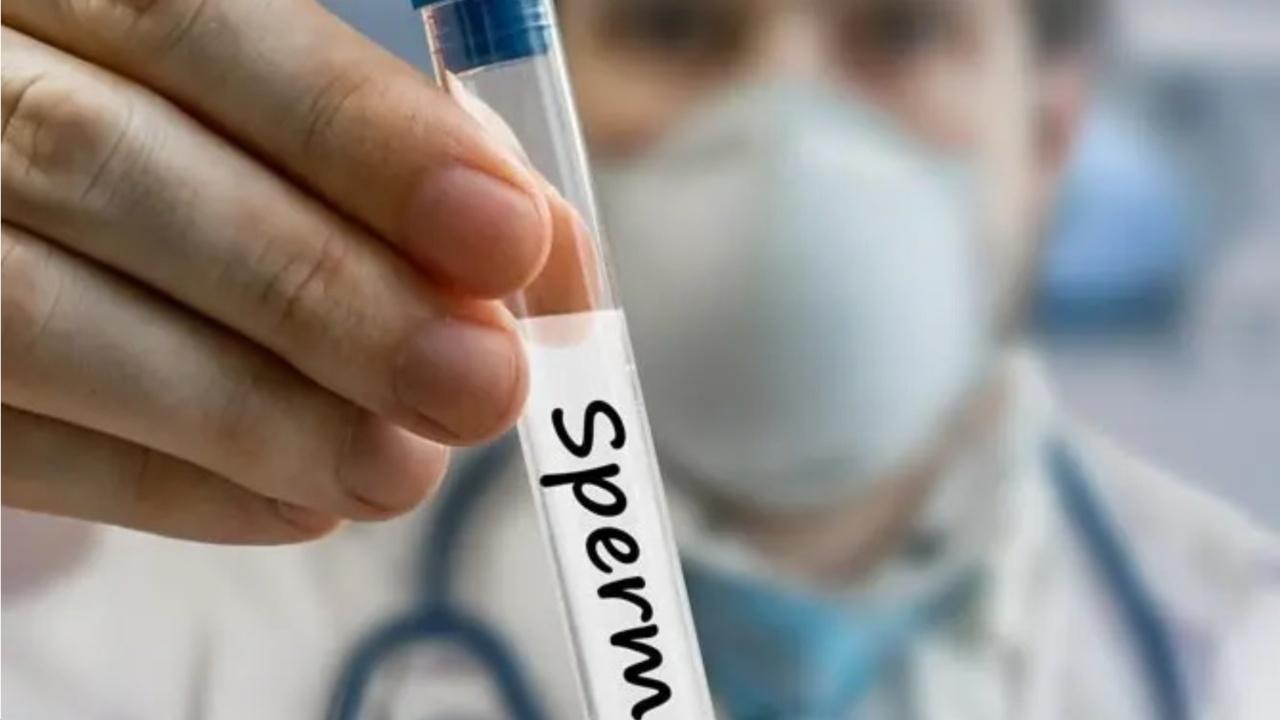There are many factors like stress, unhealthy eating habits, excessive alcohol consumption, diabetes, and others that can lead to infertility in men. “In recent years, there has been an upward trend in male infertility,” says an expert highlighting the causes and ways to manage it

Image for representational purposes only. Photo Courtesy: iStock
“Environmental factors, such as exposure to pollutants and endocrine-disrupting chemicals, can negatively impact sperm quality and production. Unhealthy lifestyle choices, poor diet, sedentary behaviour, smoking and excessive alcohol consumption, also contribute to male infertility,” says Dr Sneha Sathe, fertility consultant, Nova IVF Fertility, Chembur
Stress, delayed fatherhood, and certain conditions like diabetes and obesity further contribute to the increase. Seeking timely medical evaluation and guidance from fertility specialists is advisable for individuals/couples concerned about their fertility.
Sathe lists down some of the common fertility issues faced by men and their treatment options
1. Oligoasthenoteratozoospermia (OAT)
Simply put, it refers to the sperm low count (oligozoospermia), low motility (asthenozoospermia) and abnormal morphology (teratozoospermia). It is diagnosed by a semen test. The 3 abnormalities can be found separately or together in the same semen sample.
OAT can be caused due to
1. Endocrine problems like hyperprolactinemia, thyroid disease, hypogonadotropic hypogonadism
2. Obesity
3. Varicocele
4. Genetic conditions like Klinefelter syndrome
5. Cancer and its related treatments
6. Previous surgeries such as testicular surgery, bladder surgery, surgery for undescended testicles and inguinal hernia repair
7. Environmental factors
8. Some kinds of infections
9. Faulty lifestyles like heavy drug and alcohol consumption, using tobacco or vaping, and use of Anabolic steroids
Treatment options
Underlying causes if any, should be treated. It is important to avoid alcohol, tobacco, and drug use, and avoid excessive heat in the scrotal area. Following a healthy lifestyle (including exercise and a healthy diet) is a must. Although a variety of vitamin supplements have been studied, antioxidants or vitamins usually do not lead to a dramatic improvement in counts.
It is important to understand that the effect of any treatments or lifestyle changes will reflect in the semen analysis only after 2 to 3 months.
If OAT persists or if there are other associated infertility factors, assisted reproductive technology (ART) like intrauterine insemination (IUI), invitro fertilization (IVF), or intracytoplasmic sperm injection (ICSI) may be needed.
2. Azoospermia
In this there are no sperms that are ejaculated. Most men with zero count have normal libido, normal sexual function, and their semen looks completely normal too. The diagnosis of azoospermia can only be made by a semen analysis. Azoospermia can be “obstructive,” where there is a blockage preventing sperm from entering the ejaculate, or it can be “nonobstructive” when it is due to decreased or absent sperm production by the testis.
Causes of Obstructive Azoospermia
Congenital bilateral absence of the vas deferens (CBAVD)
ADVERTISEMENT
1. Trauma or infection
2. Previous surgery
3. Vasectomy
Causes of non-obstructive azoospermia
1. Hormonal imbalance
2. Varicocele
3. Certain medications
4. Genetic conditions- like Klinefelter’s syndrome, Y chromosome microdeletions
5. Cancer/chemotherapy/radiation
Treatment options
The treatment needs to be individualised based on the physical findings, blood test results and the wife’s age and reproductive function. In some cases, treatment for hormonal abnormalities can increase sperm production. If there is a blockage (or history of vasectomy), reconstruction might be an option.
In some men, surgery for varicocele can be considered. In many others, the best option is to attempt surgical retrieval of sperm that could be used for ICSI. It is very important that surgical sperm retrieval is performed by physicians with proper training, expertise and experience to optimize outcomes. Finally, couples should always remember that many couples across the world have formed families with great happiness and love becoming parents by using donor sperm or by adopting a child.
3. Sexual dysfunction
Like erectile dysfunction (ED) and anejaculation, this condition can contribute to difficulties in achieving pregnancy. Addressing sexual dysfunction may involve various approaches, including lifestyle changes, counselling or therapy, medications, or medical interventions depending on the specific condition and underlying causes.
It is important to note that male fertility issues can often coexist with female fertility issues, and both partners should be evaluated when experiencing difficulties conceiving. Consulting with a healthcare professional or fertility specialist can help diagnose specific fertility problems and guide appropriate treatment options.
Also Read: Afraid of having sex due to pregnancy scares? Experts share tips that will help
 Subscribe today by clicking the link and stay updated with the latest news!" Click here!
Subscribe today by clicking the link and stay updated with the latest news!" Click here!







